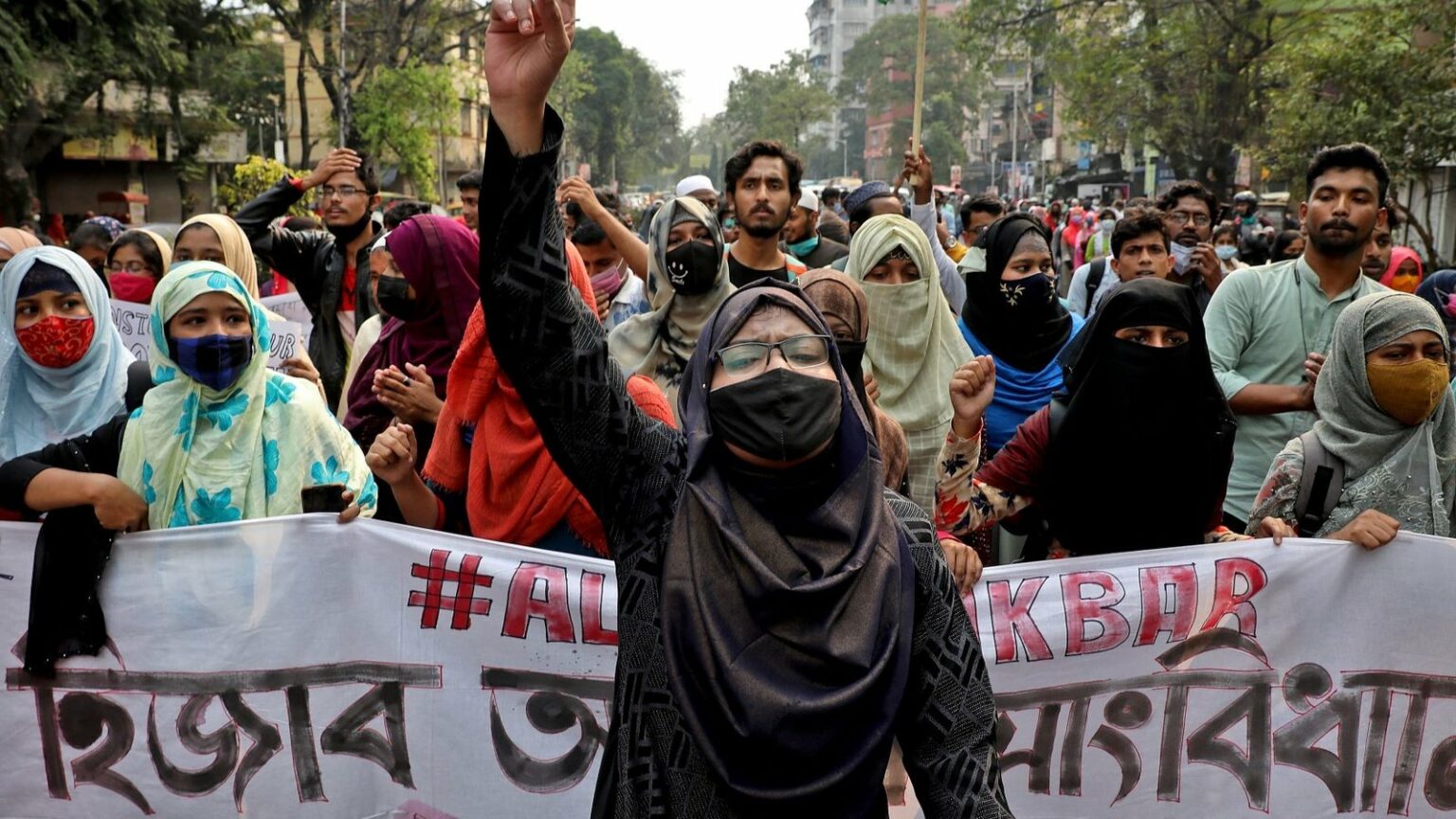The Apex Court on having adjourned the hearing regarding the petitions challenging the Karnataka High Court’s verdict upholding the state government’s decision on the Hijab Ban in educational institutes. The matter was exalted to the supreme court on September 14, Wednesday at 11.30 am.
After hearing the case on September 7th, the Apex court adjourned the case till September 12th. Justices Hemant Gupta and Sudhanshu Dhulia were placed on a bench considering a group of petitioners that contested Karnataka’s prohibition on the hijab in educational settings. In total, 23 petitions are placed before the bench. Some of these are writ cases submitted directly to the Supreme Court asking for Muslim girl students’ rights to wear the hijab. In contrast, others are special leave applications contesting the Karnataka High Court’s ruling upholding the hijab ban from March 15.
On September 7, the Supreme Court heard the case and informed the petitioner’s attorney that it would be inappropriate to compare the hijab to the turbans dressed by Sikhs. According to Justice Hemant Gupta, turbans worn by Sikhs are among the 5 requirements of Sikhism and were approved by the supreme court. Additionally, Sikhism’s practises were deeply engrained in the national culture.
To demonstrate there is no justification for the government to permit Sikhs to use turbans while forbidding Muslim ladies from donning a hijab, advocate Nizam Pasha used Sikhism as an example. He argued that, just as growing hair and donning a turban are two of Sikhism’s five pillars, following the words of Allah in the Quran is among Islam’s five, and that the dual nature of the stance demonstrates prejudice.

“There is a statutory requirement on turbans. Five-judge bench of this court held that wearing a turban and kirpan is essential for Sikhs. That is why we are saying comparison with Sikhs may not be proper. 5Ks of Sikh has been held to be mandatory,” Justice Gupta said.
On this advocate, Nizam Pasha argued that “Like the 5Ks is the 5 pillars of Islam and that is the exact position for us. Unlike in France, Sikh boys here wear a turban to school, which does not interfere with the school’s discipline.

The court has asked several questions throughout the session, including whether religious attire such as is permitted in a government-run facility in a secular democracy. The court further questioned the attorneys regarding whether, if it were to be determined that freedom of expression encompasses the right to dress, it included the right to undress.
The SLPs were submitted in opposition to the High Court of Karnataka’s March 15 decision maintaining the State Regulation of February 5, 2022, which essentially forbade the Petitioners and other similar female Muslim pupils from donning the headscarf at their Pre-University Colleges. The donning of the hijab by women is not a fundamental Islamic religious practice, according to a full High Court bench that included Chief Justice Ritu Raj Awasthi, Justice Krishna Dixit, and Justice JM Khazi. The Court also determined that the petitioners’ fundamental rights were not violated by the requirement of a uniform dress code at educational institutions.













